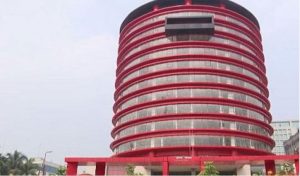Dhaka – World Bank chief economist Dr. Kaushik Basu on Sunday said that the economic growth of Bangladesh in 2015 will be 6.5 percent and this growth will reach 6.7 percent in 2016 when Chinese growth will be in the same position.
He said it’s possible for Bangladesh to achieve 8 percent GDP growth within 3 years if it can raise its savings and investment ratio of GDP to 40 percent from “current rate of 30 percent” – although the real figure is some.
He was delivering a public lecture at Bangabandhu International Conference Centre (BICC) in the city. Bangladesh Bank organised the lecture with chief economist Dr. Biru Paksha Paul in the chair, which was also addressed by its governor Dr. Atiur Rahman. “Economic growth does not depend only on economic policies. There must be progress made in a number of socioeconomic fields for growth to be sustainable,” said Dr Basu.
He found a huge difference between the development of Bangladesh in 1992 when he was in Dhaka and the development of 2015.
In last 23 years, huge achievements have been made and in many areas, Bangladesh is well ahead of India, he said adding that child mortality in Bangladesh has come down to 31 in 1000 in 2015 from 92 in 1992 while India’s child mortality has come down to 38 per 1000 against 84 in 1992.
Similarly, Bangladesh’s life expectancy has gone up by no less than 10 years – to 71 from 61 years during the period while India’s current expectancy rate is 68 years, he added.
Appreciating Bangladesh’s current foreign exchange reserve position, the WB chief economist noted the reserves went to $27 billion in 2015 from $7 billion in 2007.
The chief economist of the World Bank that infrastructure development has been the biggest challenge for Bangladesh on its way to become a middle income country.
“You have made good progress and in many cases you are well ahead of India. But still a distance to go and there are huge challenges.
He also suggested Bangladeshi policymakers to design a very effective economic policy and business ethos, where an enabling business environment could be created to boost employment. “You need good business ethos to make business process easier”.
He said how historically there is a negative perception about FDI in Bangladesh and India, as the East India Company’s investment was an FDI.
But today’s world has changed a lot and Bangladesh has been very mature in its economic dealings. “In Bangladesh, FDI is worthwhile, but you have to deal with them carefully and intellectually,” Basu suggested the policymakers of the government.
Responding to another question he said that worldwide the gap between rich and poor is increasing which has been a global problem.
But any support given to the poor should be provided directly, not through any middleman or organisation to check the leakage, he opined.
He said things have changed a lot in both Bangladesh and in the World Bank in last three years. World Bank has been working to extend its engagement in many areas where there was no focus before.
About regional trade, Basu lauded the recent development between Bangladesh and India, and said there should be more emphasis on promotion of intra-regional trade. He said the South Asian regional has the least intra-regional trade in the world. – UNB




